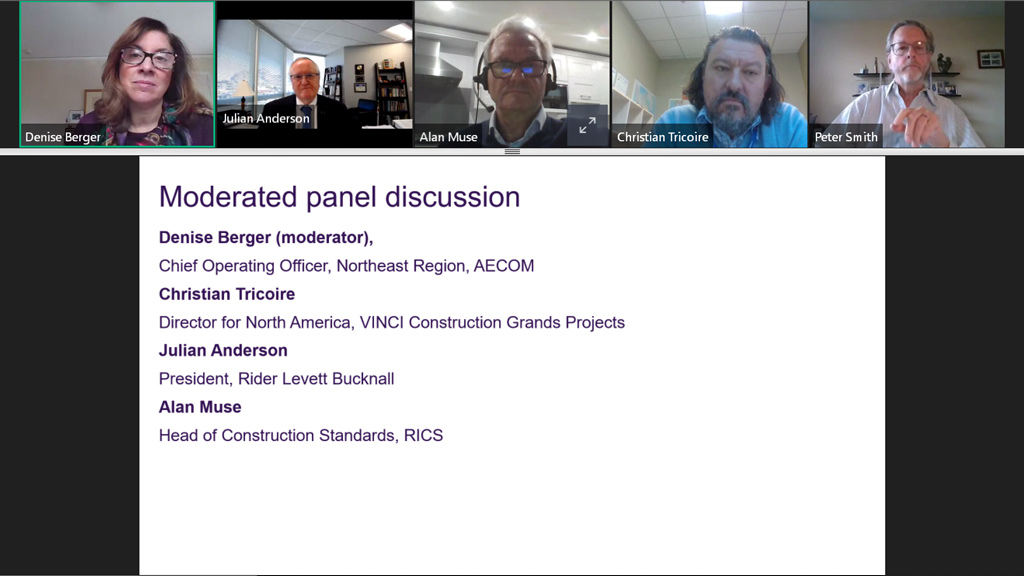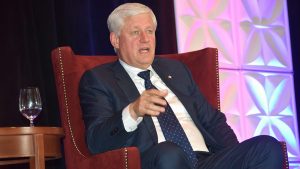The future is full of data, but the challenge is making sense of it all.
That was the subject of a panel discussion at the Royal Institution of Chartered Surveyors (RICS) conference this year.
The panellists discussed how the accelerated adoption of data and technology during COVID-19 could help usher in a new era for the construction sector.
“I’m reminded of the quote ‘nothing can happen for decades can happen in weeks,’” said Alan Muse, RICS’ global director of the built environment during the virtual discussion.
He explained the amount of data that is being generated by individuals and industries is astonishing, especially with the COVID-19 virus pushing many to adopt more technology.
“But just because that data exists doesn’t mean it is valuable,” he said. “The worth lies in analysis.”
A big step to making data valuable is standardizing it so it is consistent and comparable. Muse explained that RICS is already working on doing this with its International Construction Measurement Standards (ICMS) project which has produced a single methodology for reporting, grouping and classifying construction project costs.
Muse noted this could be invaluable for avoiding project disputes which account for 50 per cent of the global construction sector’s output. They could also assist the industry in doing things like carbon accounting.
“I think there is a major impetus for change,” said Muse.
The ICMS effort has been heavily driven by professional bodies rather than international groups. Muse said if these bodies can agree on standards, they are likely to get more traction and actually be used.
“Construction data standards will give us a framework where data can interact with each other,” said Muse.
Christian Tricoire, director of North America for VINCI Construction, echoed Muse, stating the industry often wastes time looking at data that does not make sense.
“We need to put in a new culture around data management,” said Tricoire. “It must be interconnected between all the parties. We want a true alliance between different protagonists. When there is transparency around data, that builds trust. And without data, you’re just another person with an opinion. Having data that people can understand is essential.”
Julian Anderson, president of consulting firm Rider Levett Bucknall, explained that when data has been turned into actual knowledge, other questions arise.
“The difficulty then is ownership,” he said. “Who owns it now? What benefit does the current owner get from parting with it? People often don’t want to part with their data and consider it proprietary. They are worried what will be done with it and if it could expose things.”
Anderson also noted that gathering and transmitting data has a cost, and while many are eager to get data, they are less interested if they are charged for it.
On the horizon, the panellists agreed that the use of digital twins for projects and integrating that with other tools like BIM is poised to be one of the next big things.
“The concept of digital twins is gaining traction,” said Muse. “You could dramatically improve performance for a project’s life span. Businesses could, in theory, connect with a portfolio of projects and that could be a game-changer.”
Anderson said over the decade the industry is likely to change dramatically as new technology and data become connected to the entire construction process.
“If you don’t like change you are going to like irrelevance even less,” he said, quoting U.S. Army General Eric Ken Shinseki. “I think that we will look back and wonder how we ever did business in our old-fashioned way.”
Follow the author on Twitter @RussellReports.





Recent Comments
comments for this post are closed